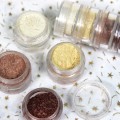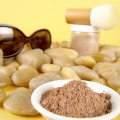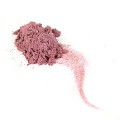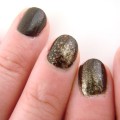“You can die from eating a few tablespoons of ordinary table salt at one time, but that doesn’t mean that table salt is a poison at the doses that humans normally consume.”
—- George Bailey, Oregon State University Professor emeritus of molecular and environmental toxicology
Recently a bill has been proposed in Colorado, the ‘Colorado Safe Personal Care Products Act’. Here is a link to the full Act. There are hearings coming up in March in Colorado. You can attend to learn more or voice your opinions. To sum up the bill it would prohibit the sale of ‘…any personal care product that contains a chemical identified as causing cancer or reproductive toxicity.’ This in itself sounds good! After all, who could possibly argue with crafting safe products? But this bill is not setting reasonable limits – it would be an outright ban on anything that is even classified as a ‘potential’ carcinogen. It’s a broadly worded bill that would have many unintended consequences.
1. The bill is overly broad and would ban many natural ingredients.
For example, many people may not realize about this is that this Act would ban even naturally occurring substances that can be found in extracts and essential oils. For example, one of the components of Basil, Citronella, Rose Otto and Tarragon Essential Oils is Methyleugenol. This essential oil component is considered a carcinogen. Does that mean we wouldn’t be able to use these safe, natural additives in our formulations? The way the current legislation is written would open the manufacturer up to fines of $10,000. This law, while well-meaning, is too general and will harm small personal care manufacturers who have less choice of ingredients to use and may in fact, prefer to use all natural ingredients, like essential oils.
For example, many people may not realize about this is that this Act would ban even naturally occurring substances that can be found in extracts and essential oils. For example, one of the components of Basil, Citronella, Rose Otto and Tarragon Essential Oils is Methyleugenol. This essential oil component is considered a carcinogen. Does that mean we wouldn’t be able to use these safe, natural additives in our formulations? The way the current legislation is written would open the manufacturer up to fines of $10,000. This law, while well-meaning, is too general and will harm small personal care manufacturers who have less choice of ingredients to use and may in fact, prefer to use all natural ingredients, like essential oils.
The proposed bill is very definite with its complete ban instead of safe usage restrictions which would make more sense (and already exist). Testing of chemicals and ingredients to classify them as ‘potential’ carcinogens is done in very concentrated amounts of the product, generally in larger amounts than the ingredients are used in ‘real life’.
For anyone who would like to voice their opinion, the House Judiciary Committee will be having a hearing for those both in support of and in opposition of this bill on March 1st. The meeting will be in the basement of the Capitol Building, in room 0107.
If you do not live in Colorado, here is all the info to contact the house members who are sponsoring this bill to get more information or suggest how the bill may better be crafted to meet the goals set out in the bill:
The bill is sponsored in the house by Dianne Primavera phone # 303-866-4667 click here to email, Dennis Apuan phone # 303-866-3069 click here to email, Karen Middleton phone # 303-866-3911 click here to email, Joe Miklosi Cap phone # 303-866-2910 click here to email.
A group in Colorado that is in support of this bill is The Women’s Lobby of Colorado. They hold open meetings so anyone who would like to speak in opposition to this bill or in support of a bill simply asking for safe usage rates, can contact them at [email protected] for information on their meetings.
It is important that we speak up for safe regulations instead of a complete ban. Using natural and safe ingredients and taking care of our bodies is important. There is already a governing body that covers beauty ingredients and cosmetic products – the FDA. They have comprehensive guidelines on best manufacturing practices, labeling laws and there already are safety guidelines in place for essential oils, preservatives, fragrance oils and other additives.
3. The bill is backed by questionable science.
I have done research on the testing process to determine carcinogenity and generally, ingredients are tested via injection in high doses or in-vitro injection, nothing as simple as small percentage in a product that is used at skin level. According to Oregon State University:
I have done research on the testing process to determine carcinogenity and generally, ingredients are tested via injection in high doses or in-vitro injection, nothing as simple as small percentage in a product that is used at skin level. According to Oregon State University:
The health impact of carcinogens is not always “linear,” This means experiments that are done using high concentrations of a carcinogen – a common practice made necessary by cost and logistics – may not accurately predict the actual risks of the compound when exposure in the real world is at lower levels over long time periods. (Oregon State University link to full article)
Here are some examples of wording from EWG or Skin Deep – a group that supports this bill shows testing results for the cancer causing substances that they want to completely ban. They list ‘concerns’ for the ingredients in question, one of these reads: ‘One or more animal studies show tumor formation at high doses‘. Another reads, ‘One or more in vitro tests on mammalian cells show positive mutation results.’ and yet another ‘Cancer – limited evidence.’
When I read these I see ‘high doses’, ‘in vitro tests’, and ‘limited evidence.’
Personal care products are not introduced directly into your body in a dose (like a drug); they are not in any way introduced ‘in vitro’. They are leave on and rinse off. If lotions really absorbed in all that well, anti-wrinkle creams would work like the packaging says they do. If the bill passes as written, many natural options would also be effectively no longer available. We need to speak up for safe and knowledgeable regulation that takes into consideration natural occurrence and recognizes the difference between concentrated doses and personal care product use. Remember, salt and water can kill and no one is looking to ban any of those items.
For a business perspective on why this bill doesn’t make sense, head over to Donna Maria’s blog here.
Other blogs on the subject:
For a business perspective on why this bill doesn’t make sense, head over to Donna Maria’s blog here.
Other blogs on the subject:
Robert Tisserand’s blog “Tunnel Vision” http://roberttisserand.com/2010/02/tunnel-vision/
Donna Marie’s blog “Oppose the Colorado Safe Personal Care Product Act” http://www.indiebusinessblog.com/2010/02/23/oppose-the-colorado-safe-personal-care-products-act/
Ann-Marie’s blog “You Can Die from Salt Too” http://soap-queen.blogspot.com/2010/02/you-can-die-from-salt-too.html
Cindy Jones’ blog, “Colorado Safe Cosmetics Act” http://sagescript.blogspot.com/2010/02/colorado-safe-cosmetics-bill.html
Kelly Bloom’s blog, “Colorado Safe Personal Care Products Act” http://southernsoapers.com/news/causes-concerns/colorado-safe-personal-care-products-act/
Lisa Rodgers’ blog, “Colorado Safe Personal Care Products Act : How Will it Effect You?” http://cactusandivy.blogspot.com/2010/02/colorado-safe-personal-products-act-how.html
Katherine Corkill blog, “Oppose Colorado Safe Personal Care Products Act.” http://sterlingminerals.blogspot.com/2010/02/oppose-colorado-safe-personal-care.html
Happi Magazine mentions the topic in “Preservative Market Update” http://www.happi.com/articles/2007/05/preservative-market-update
Handcrafted Soapmakers Guild “From the President, Colorado Safe Personal Care Product Act” http://www.soapguild.org/blog/2010/02/from-the-president-colorado-safe-personal-care-products-act/
Cosmetic & Toiletries site, “Bill Proposes the Colorado Safe Personal Care Product Act.” http://www.cosmeticsandtoiletries.com/regulatory/region/northamerica/84985577.html
Michelle Gilbert’s blog “Colorado versus the cosmetic industry” http://sarvasoap.com/blog/?p=706







What a great discussion. Kayla, Donna-Maria, Anne Marie and others have pretty much stated what I would. I just wanted to comment to madpiano. My colleagues in the natural aromatics industries in Canada, Asia and Europe are not quickly agreeing with emerging IFRA and REACH regulations and there is a now similar movement to the one we are seeing here in Asia in the aromatics community. Aromatic extracts producers who feel they would be adversely affected by these emerging restrictions are beginning to express their discomfort. Read this quick update from my friend and colleague Tony Burfield in the UK. http://wingedseed.com/blog/ Just wanted to point out that everyone is not on the same page yet with regulations that are being "globalized" originating with the European Union. Then, to have individual states here in the U.S. jump in the game makes our heads spin. Reasonableness, common sense and good science will find the way.
Heck, Olive Oil is on several lists as a suspected carcinogen on large quantities… this bill would be unenforceable.
A lot of the 'carcinogenic' substances are safer than community tap water. Are they going to ban anything made with water too?
Thank you for sharing this in your blog. I'm a really new soap and spa products business in Colorado no less. Talk about a possible nightmare. I will definitely be looking into this more.
I also would love to hear an update on this blog with more info on this.
Looks like you have a heated debate going on over on the Soap Queen blog this week!
Everyone who sells any product containing essential oils or extracts or other natural ingredients needs to know that they will also be banned in Colorado. This is not about big, little or micro-businesses. It is about bad science determining what we can use. The sun causes cancer. This is a proven and well documented fact. But in moderation it does not cause cancer. An ingredient at full dose often injected into a rat causes cancer, but the same ingredient applied topically in a finished cosmetic does not cause cancer.
Let me give you an example. Green Eye Shadow would be banned in Colordo because the EPA has the main ingredient listed as “likely to be a carcinogenic to humans.” Of course the EPA was talking about Chromic acid in a mist, but the chromium compound is on the list so it is banned. The ingredient is completely safe in cosmetics. As a matter of fact, eye lid cancer is extremely rare and is more common in men (19.6 cases per every 100,000 men) than in women (13.3 cases per every 100,000 women) and is attributed to the sun and not green eye shadow.
Thanks A-M for a great blog post.
Mustard is also considered a carcinogen but you don't see people banning that (Oh, the FDA tried awhile back but realized that you would have to eat so much of it for it to be the primary cause of cancer that it was not worth banning it).
While I agree that we need to think safety then do we also ban basil in the grocery store and in food? Let's be real – banning something in some aspects of life and not all sets a double standard.
As I'm looking around, doing a bit of research into this topic, I found a few things of interest that would indicate that big business has not looked at this bill yet.
1. Dove 'beauty bars' contain quaternium 15 and formaldehyde…both carcinogens.
2. Traditional baby powder contains talc which increases the risk of ovarian cancer.
3. Most commercial toothpastes contain saccharin which in vast quantities, like most things, will cause cancer. (Will they outlaw Sweet n Low too?)
4. Johnson's baby shampoo also contains quaternium 15, as well as FDC Red 40. Both known carcinogens.
I'm not even going to try to list the nasty things in over the counter makeup.
This bill is not very well researched. Just about everything, in high enough doses, will cause cancer. The minute amounts used in our soaps don't even come close to what is needed to create cancerous cells in tests.
I continue to educate myself in this arena and will be writing extensive emails to the creators of the bill. Thank you, Anne-Marie, for bringing this to our attention. Keep up the awesomeness! 😀
~ Juliana of Cricket Hollow Soap Works
I agree – some regulations will most likely be passed. The key is that the regulations be based on good science and recognize that everything, at some level, is toxic when taken in levels larger than what is safe.
Sustainable Soaps brings up an excellent point about fluoride. Flouride is found naturally in water. In large levels it is toxic and can kill you. This is why there are clear usage guidelines about this product as an additive in toothpaste and water. It's a risk that needs to be balanced: healthier teeth with a low level amount of flouride or risk gum decay (which leads to heart disease) and cavities (a lifetime of heavy metals in your mouth – unless you go for the more expensive synthetic fillings).
It's the same with the essential oils and the numerous other things that might be banned – there is a safe lower limit of use where we can enjoy using Rose Essential Oil and not reach anywhere close to the levels the in vivo/in vitro tests reached in terms of doses.
I am totally into health and deeply committed to leading the best, most healthy life I can with my skincare and my personal lifestyle habits. (I am drinking my decaff (swiss water process) soy (organic) latte right now, having just gotten back from my daily gym trip. I have an apple and organic yogurt to eat for my 5 p.m. snack since it's a late night at the office tonight.)
A good example of bad science is found on Sustainable Soaps (the above commenter) site. She makes rockin' great, natural soaps because she cares about her family, the environment and is trying to create a better way to wash herself and her family. But, one ingredient, Green Chromium Oxide (potentially up for a ban) is a "4" on the Skin Deep site because it is likely to be a carcinogenic to humans. No word on how it became 'carcinogenic' or in what amounts (did a rat literally eat a pound? was it ingested? was it truly tested in a soap? how many years and washes was that soap used?) but under the Colorado legislation, you would be eligible to have your neighbor sue you for $10,000 for using a natural colorant source. This is the problem with the bill. You're doing the right thing. You're well intentioned. You are passionate about what you do. You are using the products in a safe and effective manner. Yet, you could be punished for that.
I truly believe that the Colorado bill, while well intentioned, goes too far by giving individuals the power to sue and police the law AND the outright ban on ingredients is too stringent. There are safe levels for many of the natural ingredients that would be 'banned'.
I'm hopeful that this discussion can help all of us become more motivated to (a) follow current rules around best manufacturing practices and labeling laws and (b) work proactively with government to help draft bills that do protect consumer safety while also protecting small business.
=) A-M
Well-stated Madpiano! Skin is the biggest and most sensitive organ of the body–don't tell me slathering lotion on it and watching it disappear isn't called "absorption." If Methyleugenol is a carcinogen, maybe we shouldn't be using it! Just because mercury and lead come from the earth and are natural doesn't make them safe. I can't help but remember the reason I started making my own personal care products in the first place–because I wanted a higher standard, because I wanted a healthier, fresher, more natural product. The Tom's of Maine toothpaste I brushed my teeth with this morning contains fluoride AND sodium lauryl sulfate–both toxic. What a joke! If it ain't homemade, it's full of junk! Let's take the high road here soap makers and think about the big picture (which is not our inconvenience or our sales…it's our health and safety).
Ok, I see your point that this should not be something that is different in 51 states. Otherwise this would cause havoc in the US (it is difficult enough in Europe). But I do think that the US should come into line with the rest of the world when it comes to soap and cosmetics. It will make your homemade soap more competitive and it will allow US suppliers to push into these markets.
Anonymous, I have no idea why you had to have tour facilities inspected. I am in the UK and I didn't have to go through that. But I do have to show that I know how to make soap before I am able to sell it. That's not such a bad thing ? It's not political here at all. Quite the opposite. Because we DO have these regulations, the politicians get a lot less involved. If your country is not able to police existing regulations and allows unsafe products onto your market, then that's not a reason to abandon laws ? But that is a completely different point and needs to be addressed separately.
Having followed these discussions for a while now, I don't think producers in the US will get around the fact that some regulations will be passed. It would probably be a lot more useful, if you would push for the fact that these regulations need to be the same in all states and that they should be similar to regulations in Canada, so that you get the benefit of being able to sell your products there (legally) and therefore become more cometitive. Rather than restrict your domestic market more.
It's my concern that if one state sets up individual laws regarding this then, as Donna Maria states, we could end up with 51 separate sets of laws making it impossible for small soapmakers to sell/ship product across state lines. Additionally, while I think the intention of this legislation is good, it is too broad and will be difficult to enforce. I find it interesting that nicotine, bleach, Twinkies, petroleum based candles, etc., substances that have been proven without a doubt to be toxic and cancer causing are still legal and some are not even required to carry health warnings, Let's encourage and support education (like supporting organizations like Donna Maria's and the HSMG) about our products and focus on real pollutants because let's face it folks, lawn mower fumes, NASCAR, microwaves and pool chlorine are, if not more, harmful to your health and there's no regulation about those.
I really appreciate this article! Thanks for posting it and also the pros and cons on this topic and the possible changes they should make.
But please be aware that the terms in vivo and in vitro only describe how the experiments were performed! In vivo means the testing was done with a living animal (mouse, rabbit etc, and this isn't limited to putting stuff IN their bodies!)), whereas in vitro simply means that the testing was, basically, done in a petri dish. So of course, you will never be able to apply your products on humans in vitro ;).
I definitely agree with you on that dosage aspect of the tests! So, let them repeat the tests with sensible dosages and IF you still get positive results, then we can talk about it again ;).
The US has 50 states and each one of them could pass its own law. Cosmetics regulation is not preempted by federal law in the US, so while a state cannot lower the federal standard, it can raise it as high as it wants, and each state can have separate standards, labeling requirements, inspections an fees.
So separate and apart from whether or not Canada and/or Europe have changed their laws, in the US, in addition to a uniform federal law, US companies could have 51 completely different laws with which to comply. That’s different from one Canadian law, one European law, etc.
This post is not about a federal or national law. It's about a state law and that makes a huge difference in how the issues should be analyzed.
Anne-Marie – You guys are awesome and this bill is utterly RIDICULOUS. Pullease.
First of all, as one whom produces product personally for boutiques in Tokyo, London and in the US – I beg to differ with the "logic" behind this law as well as comments by the person from the UK above.
In the first place, if you have never actually BEEN through the process of testing – you will find that it's actually not in concern for you product safety. What it's in concern for is the amount of money they get for inspecting your facility. Period. We have been through this process in UK and it's annoying and useless and fyi: very political oriented like everything else that parades itself under the auspice of "consumer safety" – whilst HIGHLY carcinogenic components are used in many imported products that magically fly below the radar.with ANY STILL… unbelievable.
This whole issue IMO is just another way for the VERY politically tied and VERY pharmaceutic based "big brands" to squash the smaller producer out of the market…. So they can continue to corner it – and of course, continue to lobby (again: read pay lawmakers) for the privilege to use toxic additives (yes they do) – under creative legislative instruments and loopholes – while all the "little people" do exactly what they design which is run around worrying over what is in their (likely adulterated "rose otto") – and thujone levels etc. which is a huge waste of time.
It's really a big sham. People in CO and anywhere should tell the FDA and IFRA to stay the freak out of legislation. They "test" yeah ok — what do they test? They test what they have in hand but not the other 99% that is already adulterated before it even hits the port. Of course not. There is no valid and real way to control it and they know this. The fact they are trying to do so with bogus new "consumer safety legis" demonstrates nothing more than the underlying agenda.
Anyone that really thinks "our" safety is of concern is simply uninformed.
I am aware this comment is rather strong – but it is frustrating to see how "law" continues to mar even the most banal of practices used for centuries like: making a simple cold process soap with plants or other oils — just as the great grandmothers of these "lawmakers" did ALSO.
:)))
Oh brother….we have so many places where the gov't could be doing some good, and they're going after this. UGH!
I think this is going to come as a shock to americans, but in Canada and Europe we already have all these regulations and we manage to comply with them, even as back-room soap makers. I am based in Europe and it is IFRA which wants to restric Methyleugenol further. As a small producer, I am already banned from using it (by my cosmetic safety asessor), as the restrictions are so extreme that it would be difficult to comply. Yes, that does mean that I cannot use Rose EO for any or my fomulations. Instead of pushing your country not to introduce this law, I think you would have a much better chance if you ask your country to have a look at the legislation in Canada and Asia and make your law similar, so your producers can compete in the international market. It is currently illegal for me to import US Fragrance Oils and use them in anything I sell, US made soap cannot be sold in the UK, unless they get tested and certified at some chemical lab for a lot of money etc.
Sure it is going to be different for some of your makers. No one will be able to buy some lye, throw it into the deep fat fryer and sell what comes out as soap anymore. Is that such a bad thing ? Cosmetic Safety Assessments aren't very expensive here, due to the fact that everyone who sells soap and cosmetics has to get them. The demand made them resonably priced. They cost less than 1 year's insurance. I have seen prices for challenge tests (someting only water based concotions need) and they are cheaper in the US than here.
Because we do have Cosmetic Safety Assessors, our governments do not get involved as much in our formulations. They trust our assessors will be able to read through the IFRA and other guidelines and advise us and certify us accordingly. I think I'd rather have that, than some busy-body in government making blanket bans because they do not understand.
This is very important! and NOT good! Consumer education and Consumer choice are two things I think everyone can agree on. Thanks for the info. Ann Marie…
I emailed this info to my daughter in CO and as a consumer she is really upset. I'll have to get her involved in contacting her legislators to stop the bill as written and get it written to not be so vague. Thanks so much to you and Kayla for keeping us abreast of all this!
Thank you for this important information. I will be reading more about it.
Thank you so much for posting this. This is of special importance to me because I am a small business owner in CO. I make personal care products will essential oils and other natural ingredients. I can see both sides of the argument, but like many others, I am concerned over how broad this law is. You have pointed out in previous posts that certain substances have been linked to cancer (parabens come to mind), but are not shown to have a causal effect. I am very worried that this law would ban even those substances that are not proven carcinogens. I also worry that the ruling for what constitutes a potential carcinogen will not be based on repeated experiments; as is required for a true scientific conclusion, but would rely on one study alone that does not have reliable results.
I thank you again for posting this and helping to raise awareness for the need for safe usage standards instead of a blanket ban.
I imagine you will be getting some very heated opinions on this post, Ann Marie! Not being one to side whole-heartedly with either side, I just want to mention a couple points. 1)there are cancer cells in every living being – whether or not they start mutating and spreading is what they should be looking for in these studies. 2) a similar law went into effect prior to establishing guidelines regarding lead content in products for children. While well intended, it was not well thought out. We have seen this affect motocross racing for kids. Because the bikes contain parts with lead in them, it is difficult to purchase new bikes or parts because vendors are afraid to sell them because of the risk of a fine.
I realize that there are definitely strong feelings on both sides of this issue. It will be interesting to read your other readers' responses!